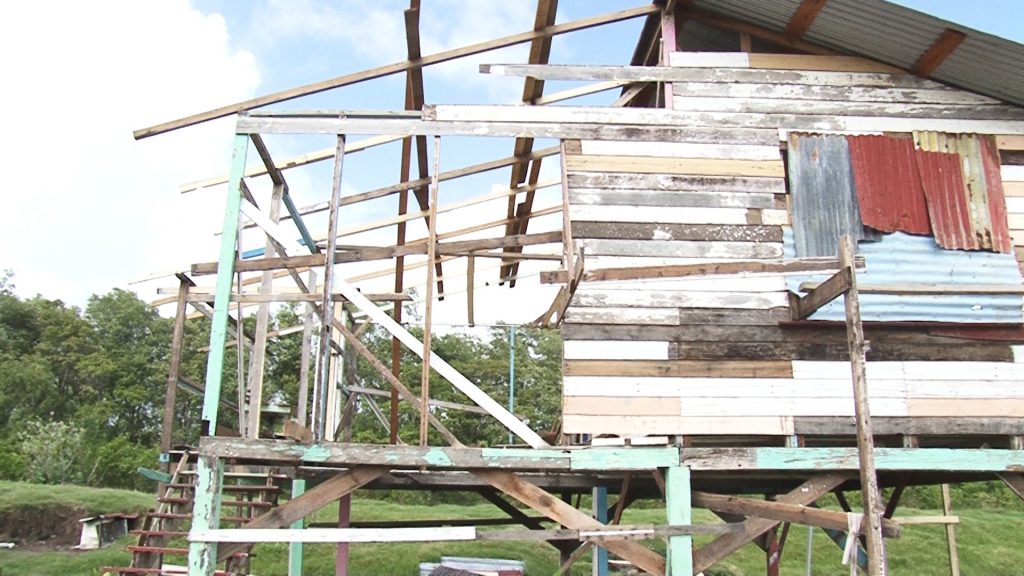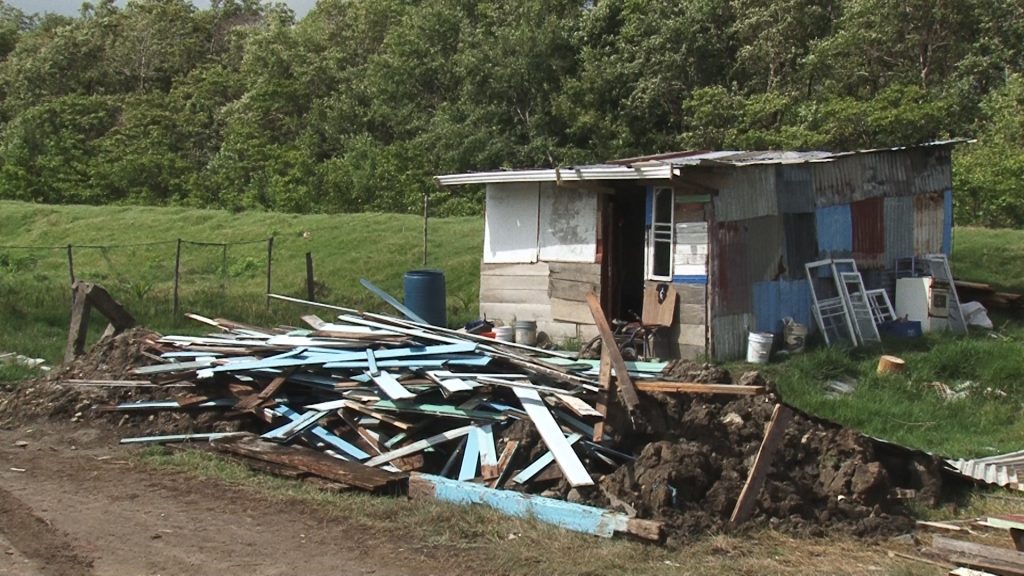A group of Venezuelan migrants have been setting up makeshift housing structures in Venezuelan scheme behind the Non-Pariel village, East Coast Demerara but the authorities aim to relocate them soon.
“Some people give gave me a little bed; it is not much but at least we are not sleeping on the ground,” Antonio stated. The “we” he referred to is his baby daughter and wife.
He said he was born in Venezuela but has Guyanese parents.
Antonio said he has been struggling to make ends meet under the administration of Nicolas Maduro and decided to venture to Guyana for a better life.
Antonio along with other migrants squatting near the coast survive by helping each other from day to day; kind-hearted individuals have offered assistance.

Satwan Kemraj, another migrant, said he was born in Guyana but has been living in Venezuela for close to 16 years.
He has tried to get land from the authorities here.
“I went in to get a piece of land but they telling us two to three years; we can’t wait two years so we had to do something,” he said. He is in Guyana with his wife and two daughters.
He said the family was tossed out of their rented apartment after not being able to pay the monthly rental in Venezuela.
The migrants claimed that locals underpay them for their skilled labour. They also claim that their circumstance and intentions are misunderstood as they would be more than willing to pay for legal housing and land if given a realistic chance to.

A recent report by the National Multi-Sectional Coordinating Committee claimed that the issue got the attention of the Region Four RDC and the Guyana Police Force.
The International Organization of Migration (IOM) along with the Civil Defense Commission (CDC) is expected to relocate the migrants.
The number of Venezuelan migrants in Guyana now stands at 4, 421. This was announced at Tuesday’s meeting of the Committee at the Department of Citizenship’s boardroom, Shiv Chanderpaul Drive.
A new Displacement Tracking Matrix (DTM) conducted by the IOM in the Pomeroon-Supenaam and Cuyuni- Mazaruni Regions (Regions Two and Seven) showed a continuation of the trend of the migrants being mostly females between the ages 18-30, the majority of whom have completed secondary education. Additionally, income generation and employment opportunities remain at the top of the list of needs of migrants at this time.
As the Committee continues to work to develop a comprehensive, sustainable programme to support migrants, the Department of Public Information (DPI), stated that the IOM, in the coming weeks, will embark on an initiative to train representatives of the various agencies in the areas of Camp Management and Camp Coordination and Trafficking, Smuggling and Exploitation for Migrants.
DPI reported that over the past two weeks the CDC distributed 150 food hampers at Kaikan (Region Seven), 30 food and non-food items in Khan’s Hill, Barima-Waini (Region One) and 22 food and hygiene kits at Imbotero, Region One.
Additionally, over 800 non-food hampers have been sent to the Guyana Defence Force (GDF) Base Camp Everaad to be distributed in Region One.
Moreover, the CDC’s work with regard to migrant relief, has attracted the support of the Church of Jesus Christ of Latter-Day Saints, DPI stated.






